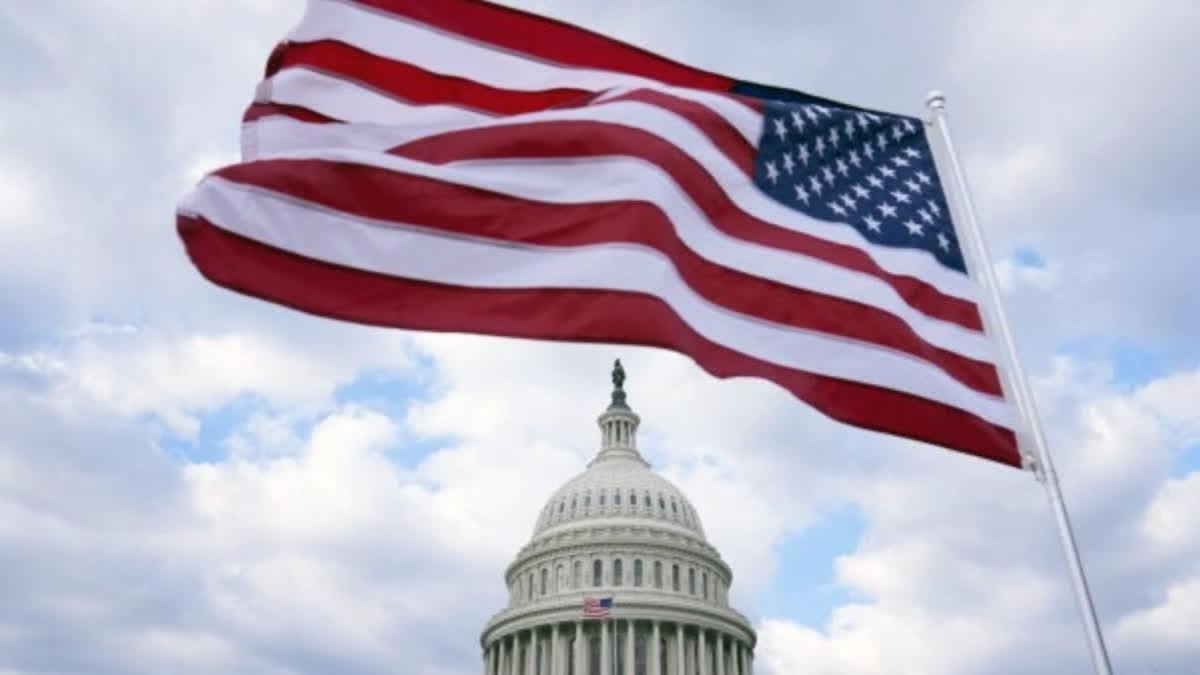New Delhi: Even as India said that it has high stakes in Bangladesh ahead of the parliamentary elections, the US, a strong ally of India, is losing its popularity among the public in the eastern neighbour because of Washington’s interventions in the electoral process.
But India has made it clear that the elections in Bangladesh are an internal matter of that country. External Affairs Ministry spokesperson Arindam Bagchi said in a regular media briefing on Thursday that “the Bangladesh people have to decide for themselves”.
Last month, when a Bangladeshi media team visited New Delhi, Bagchi made it clear that it is for the people of Bangladesh to decide how to hold the next national election in their country.
“The Bangladeshi people will determine how the election will take place, ministry spokesperson Arindam Bagchi told the members of the team. “As a neighbour, India wants a stable and democratic government-run Bangladesh.”
But what has riled the ruling Awami League dispensation in Bangladesh is the continued interventions by Western powers, particularly the US, in the run-up to the elections to be held on January 7 next year. Earlier this year, the US imposed visa restrictions on Bangladeshi officials and political functionaries for what it called undermining the democratic electoral process.
US Ambassador to Bangladesh Peter Haas had met with the Chief Election Commissioner and wanted to meet leaders from the ruling party (Awami League), the opposition (Bangladesh Nationalist Party), and an extremist group (Jamaat-e-Islami). The primary goal, the US claimed, is to broker peace and encourage the opposition to participate in the elections.
Bangladesh Prime Minister Sheikh Hasina has, however, alleged that the US is seeking a regime change in her country. She has referred to US’ interference in the domestic politics of other countries in the past.
Her allegation does hold water as the US has historically had an involvement in the functioning and focus on “regime change” in countries where either Washington deems the regime as authoritarian and in need for democracy or unsupportive of US interests. But the fact of the matter if that the US does have enormous economic leverage on Bangladesh being the largest importer importer of Bangladeshi goods
In a recent development, Ambassador Haas met Awami League general secretary Obaidul Quader to hand over an official letter - sent by US Assistant Secretary of State for South and Central Asian Affairs Donald Lu - calling for “dialogue without preconditions” among three major parties - Awami League, Bangladesh Nationalist Party (BNP) and Jatiya Party - to resolve what he called the political crisis over the upcoming election.
While the BNP has replied to Lu saying that it was open for discussions, the ruling Awami League has rejected any dialogue. The Awami League has not been acceding to the BNP’s demand for the formation of a caretaker government ahead of the elections.
According to Aharin Shajahan Naomi, an academic and social activist of Bangladesh who is currently pursuing her post-doctoral fellowship at KREA University in India, the US is not happy with Bangladesh for engaging with China.
“In the last nine years, one of the reasons for the economic turnaround in Bangladesh has been Dhaka’s engagement with China,” Naomi told ETV Bharat. “But the US does not want Bangladesh to engage with China. That is why it is aupporting opposition parties in Bangladesh.”
She said that one reason for this is the US’ strategic interest in the Bay of Bengal as part its Indo-Pacific policy. The US, along with India, Japan and Australia are part of a Quad that is working for a free and open Indo-Pacific in the face of Chinese hegemony in the region that extends from the east coast of Japan to the east coast of Africa.
“Does the US want Bangladesh to be a part of the Indo-Pacific politics? I don’t know. But the US intervention in Bangladesh politics is very unwelcome,” Naomi said. She said that in the last four-five years, the opposition parties indulged in very little violence. But now, with the elections approaching, they have been emboldened to indulge in violence.
“The biggest challenge for Sheikh Hasina in the upcoming elections is US involvement. Without US involvement, the opposition parties have very little credibility,” Naomi said.
She stressed that in Bangladesh, the Sheikh Hasina government has got acceptance for bringing about stability and economic progress. However, if the opposition parties, which include extremist Islamist elements, come to power, there will be problems not only in Bangladesh but in the northeastern region of India as well.
Another reason, Naomi said, why the US losing popularity in Bangladesh is Washington’s support for Israel in the war against Hamas in Gaza. Prime Minister Hasina has been vocal in her support for Palestinians since the outbreak of the war on October 7.
“I express my profound concern at the tragic, inhuman existence of the hapless Palestinians in the face of merciless carnage. It is time for all of us to unite as one world and demand the end of the conflict,” Hasina said on Friday while addressing the Second Voice of the Global South Summit hosted by India in the virtual mode.
Meanwhile, there are also speculations about the whereabouts of US Ambassador Haas. While some reports say that he has gone on a vacation to Sri Lanka, others suggest that he has been recalled after the announcement of the election date last Wednesday. The Bangladesh foreign ministry has said that when diplomats come or leave a country, the host government should be informed.
Read more
ED summons US millionaire Neville Singham in News Click case



